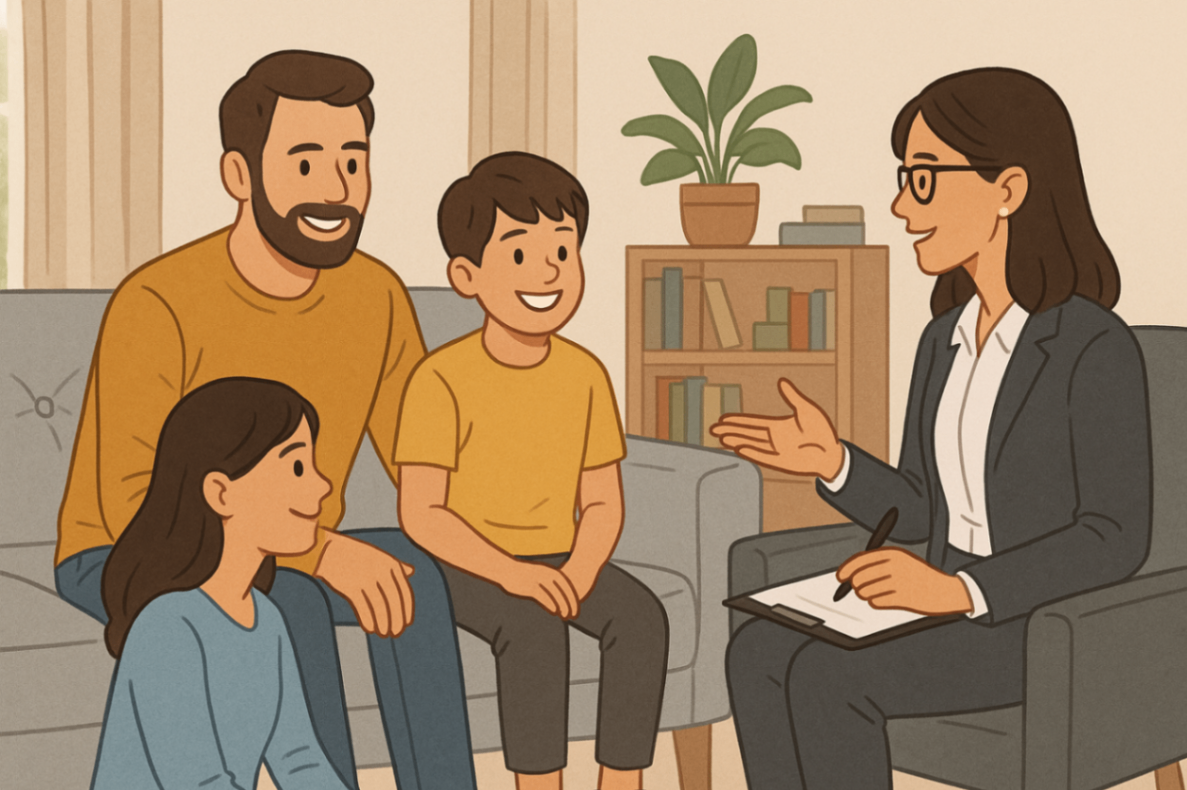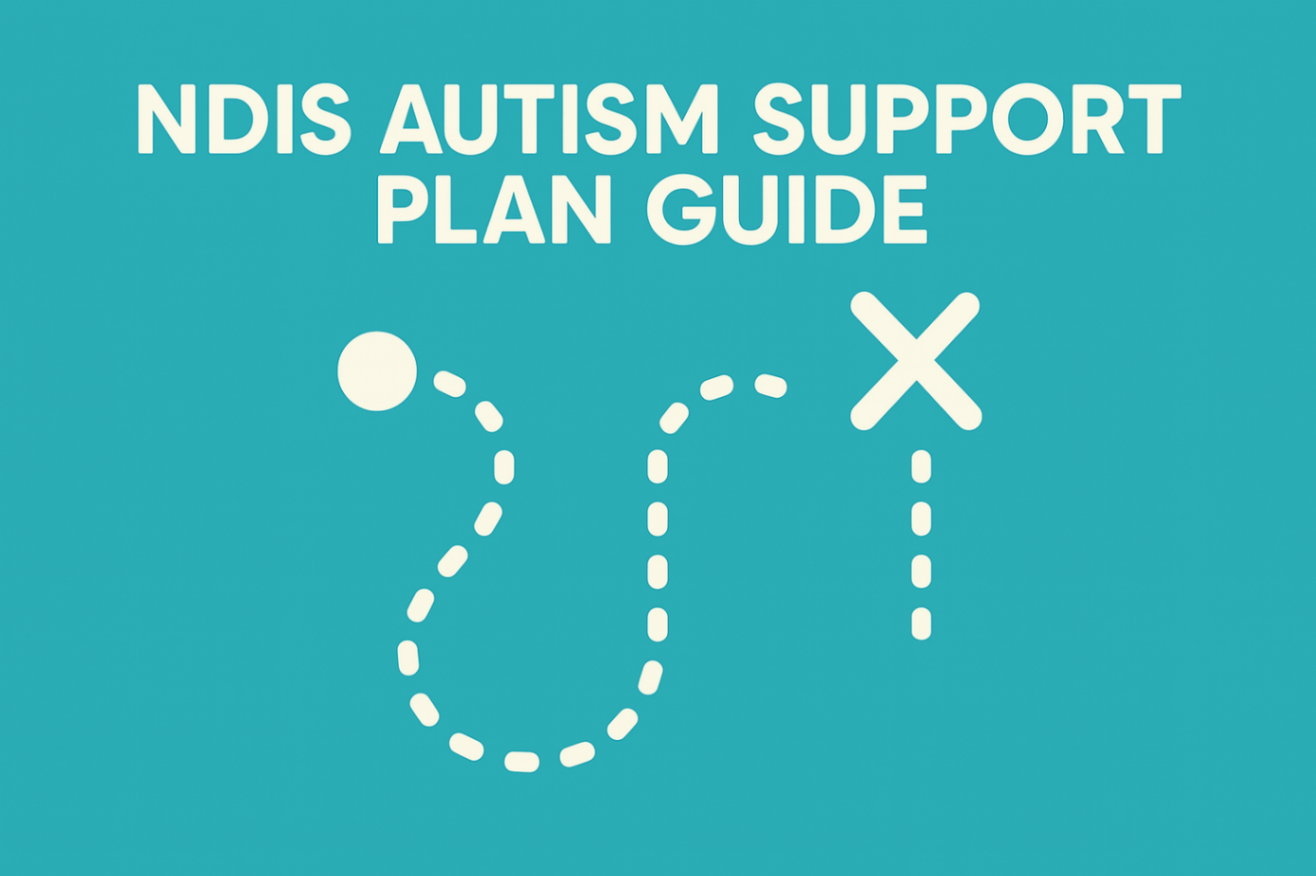
ndis autism support plan guide
12 July, 2025
Last Updated November 19, 2025
Key Highlights
-
The NDIS Autism Support Plan focuses on delivering individualised assistance for participants, based on their level within the autism spectrum.
-
Funding through the National Disability Insurance Agency (NDIA) covers therapies, support services, and assistive technologies tailored to your individual needs.
-
The program supports children under nine through the early childhood approach, reducing developmental delays.
-
Participants access funding levels according to autism severity: Levels 1, 2, and 3.
-
Collaborating with service providers ensures quality care, while NDIS plan management offers flexibility and control.
Introduction
Navigating the National Disability Insurance Scheme (NDIS) for autism can feel overwhelming—but with the right plan in place, you’ll unlock tailored supports that help your child thrive. A well-designed autism support plan makes therapy, behaviour support, and everyday tools work for your child’s unique strengths and goals. In this guide, we’ll walk you through how to build your plan, select the right therapies and providers, and make sure every dollar counts.
What Is an NDIS Autism Support Plan?

An autism support plan outlines your child’s goals, the supports they’ll receive, and how progress will be measured. In practical terms it covers:
-
Personal goals, such as developing communication, coping with emotional stress, or building social skills.
-
Therapy and support services, including speech therapy, occupational therapy, behaviour support, psychology, and more.
-
Funding allocations from the NDIA that cover these services and supports based on your child’s needs.
Your child’s plan is shaped by their unique strengths, challenges and developmental goals—making it a dynamic roadmap rather than a one-size fit.
To access these supports, parents submit an Access Request Form, supported by an autism diagnosis and evidence of functional impact. Once approved, the NDIS works with you to create a plan that aligns with your child’s goals and developmental needs. To ensure your plan aligns with funding requirements, review the NDIS Funding for Autism & Eligibility article.
2025 Update – What You Need to Know
In 2025, the NDIS continues to evolve how it supports children and families with autism. Recent data shows a marked increase in the number of autistic participants and the funding levels allocated. According to a snapshot, more than 37 % of all active NDIS participants have autism as their primary disability.
Key updates for families:
-
Plans may focus more strongly on functional capacity rather than diagnosis alone.
-
Early intervention remains highly prioritised: for children under 9, accessing the plan via the Early Childhood Early Intervention (ECEI) pathway is still crucial.
-
Providers and families should expect more documentation around goals, progress measurement, and reviews.
How to Build an Effective Autism Support Plan
- Start with clear, measurable goals: Begin by identifying what change you want to see. Example: “Improve my child’s spoken vocabulary by 50 words in 6 months” or “Reduce school meltdowns to under 3 per month.”
- Gather evidence and assessments: Use existing reports (diagnostic, speech, behaviour, OT) to clearly show how autism affects daily living—this strengthens your plan submission.
- Participate in your planning meeting: Join the NDIS planning session prepared to discuss supports, why each is needed, and which provider can deliver them—this is where your voice counts.
- Select experienced, registered providers: Choosing providers who specialise in autism—and are registered with NDIS—means your supports are aligned to your goals and funding categories.
- Review and adapt your plan: Your child will grow and change. Use therapy progress reports and functional assessments to adjust supports each review cycle so your plan stays relevant and effective.
Tip: Ask for goal-based reporting from your provider—this excites the NDIA and builds your case for future supports.
Setting SMART Goals for an Autism Support Plan
What makes a SMART goal?
A SMART goal is Specific, Measurable, Achievable, Relevant and Time-bound.
Example goals for autism support:
-
“By December 2025, [child] will use 3 spontaneous two-word phrases to request preferred activities on 4 out of 5 occasions.”
-
“Within 6 months, [child] will adapt to one change in their morning routine with maximum one adult prompt, on 4 out of 5 school days.”
H3: How to write them into your plan
-
Work with your therapist and provider to translate developmental or behavioural aims into SMART goals.
-
Ensure every support item you request links back to at least one goal (e.g., “speech therapy to develop two-word phrases”).
-
At review meetings, bring evidence of goal progress (reports, attendance, observations) — this strengthens your next plan renewal.
NDIS Autism Support Levels Explained
Level 1 – Requiring support
Individuals may have noticeable social or communication challenges but can engage in most age-appropriate activities with supports. Support needs are less intensive.
Level 2 – Requiring substantial support
More pronounced difficulty with social, communication or behaviour; regular supports needed to access daily activities.
Level 3 – Requiring very substantial support
High level of support required across most daily activities; specialist and intensive supports often needed.
What does this mean for your NDIS plan?
-
Children at higher levels often receive more frequent therapeutic supports, capacity-building supports and potentially more assistive technology or specialised equipment.
-
Regardless of level, plans must show functional impact — i.e., how autism affects daily living, social participation and communication.
Understanding Autism Levels 1-3 and What They Mean for Your Plan
NDIS Funding for Autism Level 1
If you or someone you care about is at Level 1 on the autism spectrum, the funding in an NDIS plan helps with mild difficulties. People who are at Level 1 might need only a bit of help, but to get funding, you must show proof of how the disability makes daily life hard. NDIS funding might pay for therapy to help with things like talking to others and staying organised.
Most of the time, people use capacity building funding to get more independent and hit certain goals. Working with service providers is key, as you can get help like speech therapy or support with day-to-day skills. With Level 1 autism NDIS plans, you can also use everyday support services that help you build good relationships, find a mentor, and take part in your community. All these things aim to make life better.
Early help is very important. People at Level 1 can learn what they need to have fewer problems and take part in more social and work opportunities through these supports.
NDIS Funding for Autism Level 2
For people with Level 2 Autism, the NDIS gives core funding to help manage moderate trouble with talking and behaviour. At this level, people often need more hands-on help to deal with day-to-day problems at home and with others. If there is the right NDIS plan funds, then there can be therapy sessions, like occupational and speech sessions, for needs that are more specific.
Early intervention is also very important. It helps lower issues that could show up later. Families can work with service providers to make sure all necessary supports are there, like a set routine and training to deal with certain behaviours. If a person has a clear NDIS plan, this helps them get special tools and join in on programs that fit them best.
There are many support services, from help moving up through school to group activities that teach social skills. Level 2 NDIS funding gives people the chance to work towards their goals, feel stronger, and build confidence. With good NDIS help, they can take part in their world in new and better ways.
NDIS Funding for Autism Level 3
At Level 3, people with autism can face big struggles every day. They often need very strong and substantial support. They may have trouble with talking, doing simple daily things, and meeting others. Because of this, their NDIS plan gives them extra money for the help they need. This is so they can get the most suitable and appropriate support.
|
Support Category |
Features |
|---|---|
|
Substantial Therapy Needs |
This includes speech and occupational therapy for those who have slow or hard development. |
|
Assistive Technologies |
This provides people with special equipment that helps them walk, move, or talk. |
|
Personal Care Structures |
Staff can help with things like getting dressed, washing, and other daily tasks that someone might not do on their own. |
|
Educational Assistance |
People get tutoring and learning plans made just for them. This can help them learn and grow at a speed that is right for them. |
With this kind of appropriate support, someone can work on having the best quality of life that they can. The care is set up to match the individual needs of a person with autism. This allows them to keep their dignity and make their own choices, even though they could still have major limitations. The NDIS plan supports people to live better each day.
Key Services Funded in an NDIS Autism Support Plan
 The NDIS funds a broad range of services for individuals with autism, helping them build skills, confidence, and independence. These NDIS autism support services include therapeutic interventions, assistive technologies, and daily living supports tailored to each participant’s goals. A core part of many plans is NDIS behaviour support for autism, which focuses on positive strategies to reduce challenging behaviours and improve quality of life at home, in school, and in the community. If you’re located in Liverpool and want a clear roadmap to services, see our Guide to Accessing NDIS Support for Autism in Liverpool.
The NDIS funds a broad range of services for individuals with autism, helping them build skills, confidence, and independence. These NDIS autism support services include therapeutic interventions, assistive technologies, and daily living supports tailored to each participant’s goals. A core part of many plans is NDIS behaviour support for autism, which focuses on positive strategies to reduce challenging behaviours and improve quality of life at home, in school, and in the community. If you’re located in Liverpool and want a clear roadmap to services, see our Guide to Accessing NDIS Support for Autism in Liverpool.
Behaviour Support Services
Behaviour support services help people with autism feel better and build strong relationships with other people. These services are often given by health professionals. The plans are made after looking at each person’s needs. They use strategies made for each person.
Key elements include:
-
Positive behaviour support: Helps people learn good habits and avoid bad ones.
-
Mental health assistance: Psychologists work with people to ease anxiety and stress.
-
Referrals: When needed, participants get connected to counseling or therapy by professionals.
-
Family guidance: Families learn how to make life at home better and more helpful.
These ways of helping follow the NDIS goal. They work to remove the things that stop people and help them do well in different parts of life.
Assistive Technology & Capital Supports

Assistive technology can help people with autism deal with everyday problems. With NDIS eligibility, people who have developmental delays can get special devices. These devices help them do daily tasks better.
Key supports include:
-
Mobility aids such as customised wheelchairs.
-
Communication tools like speech-generating devices.
-
Sensory regulation equipment to manage overstimulation.
-
Smart home installations to enhance independence.
Also, capital funding means that people can get changes made to their homes, so the space suits their disabilities better. These capacity-building supports help close the gap and make daily life easier. The NDIS makes it possible for them to get the help they need with the right eligibility.
Therapy Supports
Therapies that get support from an NDIS plan are very important. They help people with autism build important life skills. People often talk about the early childhood approach when it comes to children under nine. This way helps with early childhood intervention so kids can get help early in their lives.
Key therapy supports are:
-
Speech therapy: This helps children be better at talking and understanding others.
-
Occupational therapy: It works on skills, like moving or planning, that are needed for daily life.
-
Play-based programs: These let children make friends and meet new people by learning together.
-
Sensory therapies: This helps with triggers that come from problems in how people sense things.
These therapies help people with autism do more on their own. The therapies also give them more chances to learn and grow through their ndis plan using both early childhood intervention and the early childhood approach.
Example NDIS Autism Plan
A well-made NDIS Autism Plan can make a big difference. For example, with the right early childhood intervention supports, a child who is 6 years old may get time with a speech therapist. They may also have weekly time with an occupational therapist. Their home may also get changes that help them grow and learn.
If families work together with a plan manager, the money can match the goals for their child’s quality of life. When goals get tracked clearly and often, and when good providers help, it shows real progress. This can mean talking better, joining more school events, and many other simple yet big steps.
For strategies on tailoring plans to each child’s goals and measuring progress, visit Individualised NDIS for Autism Plans: A Guide to Real Outcomes.
Choosing the Right Support Providers
Finding the right service providers is key when you are managing an NDIS plan. Online tools like the NDIS Provider Finder help you to get in touch with the right agencies. You can also work with your local area coordinator for advice and to get the help you need.
Choose providers who are ready to meet your needs and can change their services to fit you. It is important that they are honest and open about how they work. Good plan management makes sure your funds are well used. It also helps you access the necessary supports you need. This gives you better care and a good experience with your NDIS.
At daar, our experienced team of NDIS behaviour specialists and therapists work closely with families to deliver personalised, evidence-based support. We’re proud to provide NDIS autism support services that adapt to your child's needs—whether you prefer in-clinic, school-based, or home visits in Liverpool, Canterbury, or nearby areas.
Looking for a provider you can trust? Call daar or book your consultation now to speak with our team about tailored NDIS autism support services for your child.
How daar Supports Your Autism Plan Journey
At daar, our multi-disciplinary team works closely with families to deliver:
-
Collaborative goal-setting workshops that help align your aspirations with the NDIS framework.
-
Behaviour, speech, OT and psychology services—all coordinated for cohesive support.
-
Regular progress tracking and reporting, which strengthens your next plan review.
-
Flexible locations: clinic-based, home-based or telehealth sessions to match your family’s lifestyle.
We’re committed to turning your child’s plan into measurable progress—not just paperwork.
Conclusion
NDIS autism support services are designed to give families the confidence and structure they need to help their children thrive. Whether your child needs mild or intensive help, the right NDIS autism support plan ensures they receive the care, therapies, and tools that make daily life easier and full of opportunity.
Frequently Asked Questions
How does NDIS support Autism?
NDIS helps people on the autism spectrum by paying for therapies, activities that build skills, and helpful technologies. The support is based on what each person needs. NDIA follows NDIS legislation, and its goal is to help people who have problems doing daily things. This lets them be more independent and take part in the community.
What is an NDIS positive behaviour support plan?
An NDIS positive behaviour support plan shows steps to help manage tough behaviours. The plan is made with help from health professionals. It is usually set up in a planning meeting for the NDIS. This plan helps a person feel more stable and connect better with others. It is made to fit what people on the autism spectrum need. The goal is to give support to those with autism so they can have a good life.
What support does NDIS provide for autism?
NDIS gives money for necessary supports to help people with autism spectrum disorder. This help can include early intervention programs, different types of therapies, and ways to join in community activities. NDIS lets participants with autism spectrum get the services they need to live better lives. It helps them become more independent and gives them chances to grow on their own.
.svg)

















